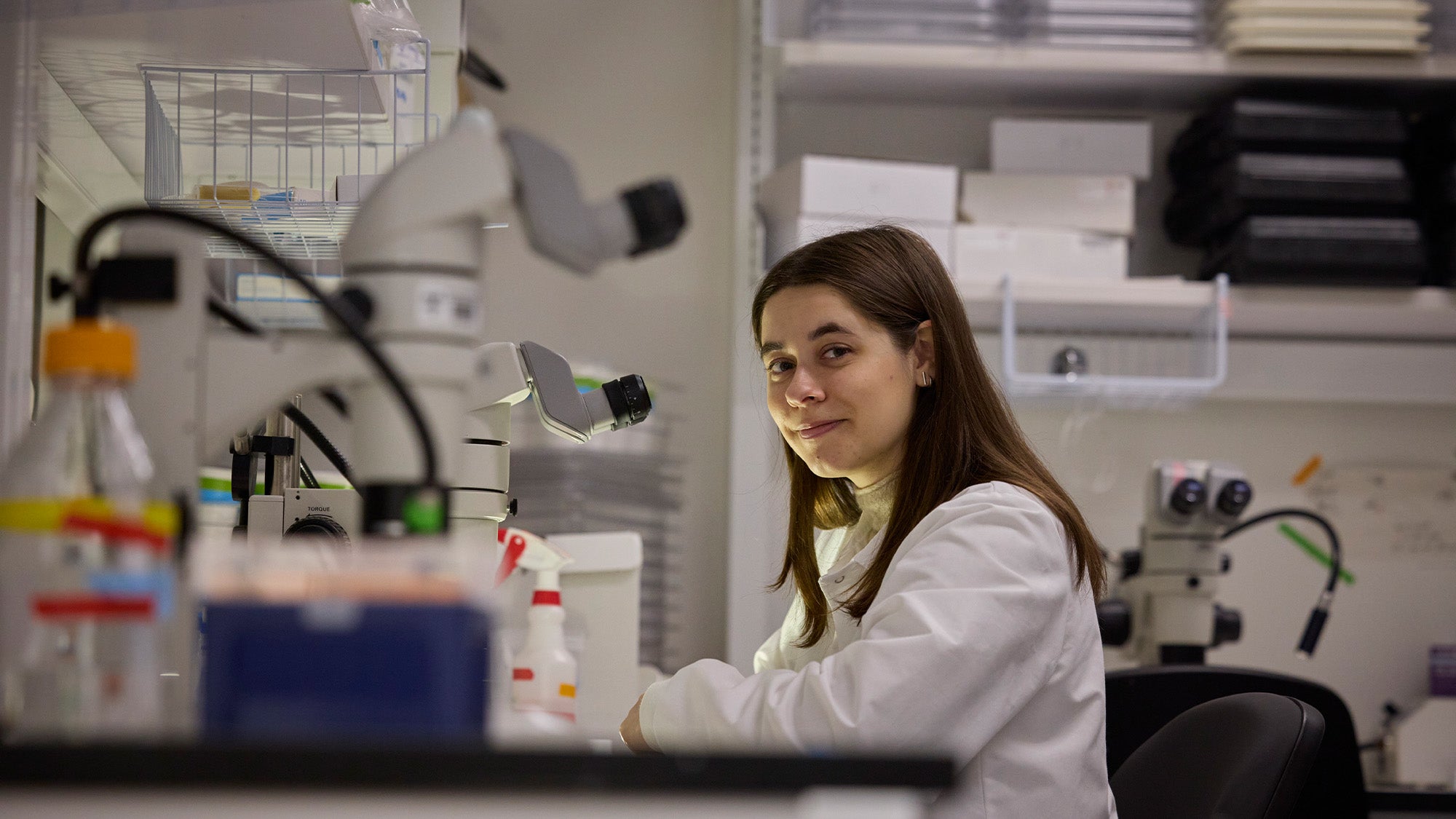Doctor of Philosophy – Biological Sciences in Public Health
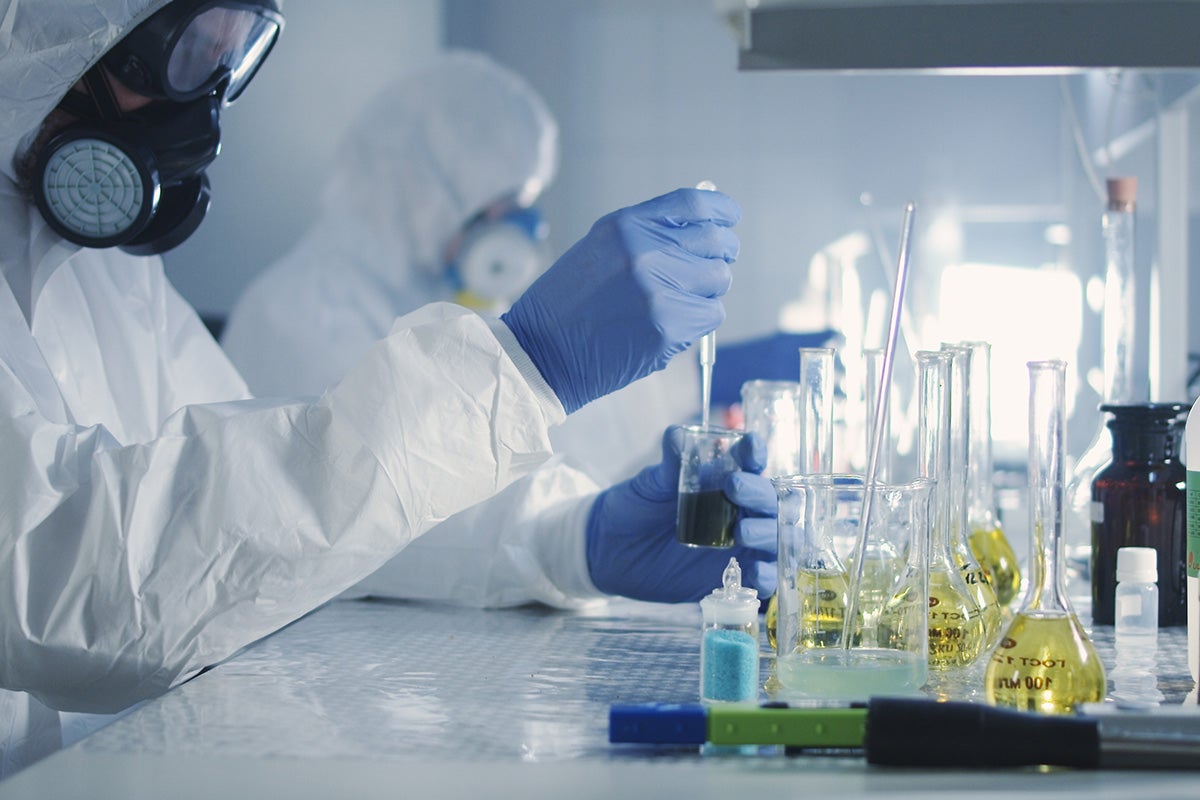
Complete the form linked below to receive additional information about Harvard Chan School’s degree programs.
Summary
The Doctor of Philosophy program in Biological Sciences in Public Health trains students in individual fields of biological research with a focus on understanding, preventing, and treating diseases affecting large populations.
The degree is offered at the Harvard T.H. Chan School of Public Health under the aegis of the Harvard Kenneth C. Griffin Graduate School of Arts and Sciences.
About
The BPH program is built on three unique pillars:
- Biological research with a focus on understanding, preventing, and treating human diseases affecting large populations
- Emphasis on laboratory sciences using biochemical, cell biology, molecular, genetic, and computational approaches to delineating disease mechanisms
- State-of-the-art research facilities within the vibrant intellectual community of the Harvard Longwood Campus
You will choose from three major areas of investigation:
- Metabolic basis of health and diseases, where you will study the control of cellular and systemic metabolism
- Immunology and infectious diseases, where you will conduct laboratory research focused on infectious and immune-mediated diseases
- Molecular and integrative physiological sciences, where you will investigate basic pathogenic mechanisms, adaptive stress responses, and other biological impacts on human health and disease
Our research, whether basic or translational, is relevant to human health. Students apply cutting-edge research technologies toward the improved understanding, treatment and prevention of human diseases with the greatest current impact on global populations.
Our program embraces the idea that progress in a given disease area is optimally promoted by a close interaction between scientists from diverse disciplines, including genetics, cell biology, biochemistry, physiology, and systems biology. Core quantitative disciplines like biostatistics and epidemiology are also fundamental to analyzing large datasets, such as those generated from “omics” approaches, and for assessing the broad impact of health problems, allowing us to look beyond individuals to entire populations.
With our roots in biology, we are able to confront the most pressing diseases of our time, gaining insights into their underlying mechanisms and uncovering novel therapeutic opportunities.
All admitted students to the BPH PhD program, including international students, are guaranteed full funding, which includes a stipend, as well as tuition and health insurance.
On Campus (Summer start) • Full-time (5+ years)
Academic Milestones
- BPH 201R: Laboratory Rotations
- BPH 219 Biological Sciences Communications
- ID 201: Core Principles of Biostatistics and Epidemiology
- Med-Sci 300qc Responsible Conduct of Science
- ID 100 Foundations for Public Health
- BST 272*: Computing Environments for Biology or BST 273*: Introduction to Programming
- BIOSTAT 281: Genomic Data Manipulation
*either course can be taken as a prerequisite for BIOSTAT 281, depending on programming experience
BPH 208 Human Physiology (Fall) (4 credits)
BPH 215 Principles of Toxicology (Fall) (4 credits)
BCMP 200 Principles of Molecular Biology (Fall) (4 credits)
GENETIC 201 Principles of Genetics (Fall) (4 credits)
HBTM 235 Principles of Human Disease: Physiology and Pathology (Fall) (4 credits)
IMMUN 201 Advanced Topics in Immunology (Fall) (4 credits)
CB 169 (Molecular and Cellular Immunology)
MICROBI 202 Mechanisms of Bacterial Pathogenesis and Host Immune Response (Fall) (4 credits)
NEUROBIO 215A The Discipline of Neuroscience (Fall) (4 credits)
BPH 210 Pathophysiology of Human Disease (Spring) (4 credits)
BCMP 234 Cellular Metabolism and Human Disease (Spring) (4 credits)
BCMP 236 Principles of Drug Action in People (Spring) (4 credits)
BCMP 250 Biophysical and Biochemical Mechanisms of Protein Function (Spring) (4 credits)
CELLBIO 201 Principles of Cell Biology (Fall) (4 credits)
CELLBIO 211 Molecular and Systems Level Cancer Cell Biology (Fall) (4 credits)
CELLBIO 212 Molecular Mechanisms of Cancer (Spring) (4 credits)
GENETIC 216 Advanced Topics in Gene Expression (Spring) (4 credits)
HBTM 200 Pathlogy of Human Disease (Spring) (4 credits)
MICROBI 201 Molecular Biology of the Bacterial Cell (Spring) (4 credits)
NUT 202 The Biological Basis of Human Nutrition (Spring) (4 credits)
(12 credits required)
BPH 304qc Eradicating Malaria and Neglected Tropical Diseases (Fall 2)(2 credits)
BPH 305qc Interdisciplinary Training in Pulmonary Sciences Part I (Fall 1) (Year 2) (2 credits)
BPH 318qc Topics in Immunology and Infectious Diseases (Fall 2) (2 credits)
BPH 320qc Advanced Topics in Molecular Metabolism (Fall 2)(2 credits)
BCMP 218 Molecular Medicine (Fall) (4 credits)
IMMUN 307qc Cancer Immunology (Fall 2) (2 credits)
IMMUN 315qc Therapeutic Human Antibody Engineering (Fall 1) (2 credits)
MICROBI 202 Mechanisms of Bacterial Pathogenesis and Host Immune Response (Fall) (4 credits)
BPH 250 Biology and Control of Vector-Borne Parasites (Spring in even years)
(4 credits)
BPH 301qc Molecular Basis for Nutritional & Metabolic Diseases (Spring 1 in odd years) (2 credits)
BPH 302qc Interdisciplinary Training in Pulmonary Sciences Part II (Spring) (2 credits)
BPH 310qc Molecular Mechanisms of Aging (Spring 2 in even years) (2 credits)
BPH 322qc Innovative Techniques and Experimental Design for Biologists (Spring 1) (2 credits)
GENETIC 216 Advanced Topics in Gene Expression (Spring) (4 credits)
IMMUN 305qc Neuro-Immunology in Development (Spring 2) (2 credits)
MICROBI 201* Molecular Biology of the Bacterial Cell (Spring) (4 credits)
(6 credits required)
| Year | Course | Semester |
|---|---|---|
| 1 | BPH 201R Laboratory Rotations | Summer |
| 1 | BPH 201R Laboratory Rotations | Fall |
| 1 | BPH 219 Biological Sciences Communications | Fall |
| 1 | ID 201 Core Principles of Biostatistics and Epidemiology | Fall |
| 1 | ID 100 Foundations for Public Health | Fall |
| 1 | BST 273 Introduction to Programming or BST 272 Computing Environments for Biology | Fall/January |
| 1 | BPH 201R Laboratory Rotations | Spring |
| 1 | 12 FAS credits worth of core or critical reading electives | Spring |
| 2 | MedSci 300qc Conduct of Science | Fall |
| 2 | Core or critical reading electives | Fall |
| 2 | BPH 300-level thesis research credit | Fall |
| 2 | BIOSTAT 281 Genomic Data Manipulation | Spring |
| 2 | BPH 300-level thesis research credit | Spring |
| 2 | Possible core or critical reading electives | Spring |
| 3, 4, 5 | BPH 300-level thesis research credit | Fall |
| 3, 4, 5 | Elective courses (optional) | Spring |
Students are required to complete two rotations but ordinarily participate in three 9- to 10-week rotations in different laboratories. Of the three rotations, two must be performed in a BPH faculty laboratory, while the third can be in a lab of any HILS faculty member. If a student identifies a dissertation laboratory after two rotations, they may petition the BPH Program Director to begin their dissertation research in lieu of further rotation studies.
In the spring of the second year, BPH students take a preliminary qualifying examination (PQE). The purpose of the PQE is to assess the student’s preparation and ability to embark on original scientific investigation. The primary goal of the PQE is to evaluate the student’s ability to identify and articulate a clear hypothesis for the thesis topic based upon familiarity with relevant literature, to propose critical experiments designed to prove or to disprove the hypothesis, and to interpret experimental outcomes in a manner that indicates awareness of the limitations of the methods used. It is not expected that preliminary data will be presented to support the hypothesis. The exam includes a written proposal and oral defense of that proposal on a topic related to the dissertation research.
The purpose of the dissertation advisory committee (DAC) is to help set research goals and directions, while assessing progress toward the completion of an original body of research appropriate for completion of a PhD dissertation.
Competencies
Upon successful completion of the program, students are expected to have gained competency in the following areas:
- Critically design and execute experiments to address novel questions within the primary disciplines of the biological sciences (e.g. molecular biology, genetics, cell biology, biochemistry, physiology).
- Communicate effectively about science, both orally and in writing, to technical and/or lay audiences.
- Examine potential ethical and/or social problems encountered during research in order to practice responsible conduct of research.
- Apply computational and statistical tools and/or techniques to obtain, analyze, and interpret a variety of modern genome-scale data types.
- Apply expertise in one or more research areas within the biological sciences, gained through original bench research, toward completion of a dissertation.
Our Community
Dedicated to Discovery and Impact
The BPH program is rooted in the rich and diverse environment of the Harvard T.H. Chan School of Public Health, dedicated to advancing the public’s health through learning, discovery, and communication.
Located in the Longwood Medical Area of Boston, the program brings together faculty in the biological sciences throughout Harvard University. The Medical Area, which includes the Harvard T.H. Chan School of Public Health, Harvard Medical School and a cluster of hospitals, comprises one of the most concentrated areas of scientific research facilities in the United States. The interaction of faculty working at associated institutions, through joint teaching and research, enables the program to serve as a meeting place for the biological, medical, physical, and chemical scientists. This provides students and faculty alike with a wider range of experiences and techniques than may be found in any single discipline or department.
At the Harvard T.H. Chan School of Public Health, modern research laboratories are housed on 14 floors of three buildings. Students have access to the Countway Library, one of the most complete biomedical research collections in the nation.
The main Harvard University campus in Cambridge encompasses a wide variety of strong academic departments and facilities in the humanities and sciences. The program specifically interacts with the biological sciences programs in molecular and cellular biology, organismic and evolutionary biology and biophysics.
Several departments participate in the BPH Program offering the PhD in Biological Sciences in Public Health:
- Department of Molecular Metabolism
- Department of Nutrition
- Department of Immunology and Infectious Diseases
- Department of Environmental Health
The BPH faculty at Harvard Chan School of Public Health are a distinguished group of scientific leaders who span a wide range of disciplines, driving innovation and pushing the frontiers of knowledge.
These 40 faculty members are deeply passionate about science and are dedicated to contributing to the greater good. They understand that excellence in research requires learning from others, and as a result, they are highly accessible, engaged, and present for their students. Whether in the classroom, at the research bench, or within the broader scientific community, BPH faculty are committed to discovery, teaching, and mentorship, creating an environment where students can thrive and reach their full potential.
The class profile of our 60 BPH students reflects a highly diverse and geographically dispersed group. Representing 31 states and nine countries, and with 17% of students coming from outside the U.S., the cohort brings a rich variety of perspectives to the program.
Their academic backgrounds span a broad range of fields, including biochemistry, biology, environmental health, epidemiology, medicine, nutrition, and statistics, among others. Students are affiliated with various departments, with the largest group (17) in Immunology and Infectious Diseases, followed by smaller cohorts in Molecular Metabolism & Nutrition (7) and Environmental Health (6). Other students (18) opt to join HILS-affiliated labs. And our 12 first-year students are still in the process of selecting a lab. The average time to complete the PhD is 5.8 years, reflecting the program’s strong emphasis on mentorship and interdisciplinary collaboration.
My graduate training at Harvard has given me the skills to be a bacterial geneticist. At the most fundamental level, though, it’s taught me how to ask good questions—and find the answers. Along the way, the people of Harvard Griffin GSAS have given me every tool and resource I need for success and have made me feel I belong, even far away from home. Now, I think the best way to use these gifts is to pursue those questions which repair our world. For me, that lies in the process of developing new treatments for devastating diseases.
Harim Won 2023 BPH Alum, Eric Rubin Lab, Department of Immunology and Infectious Diseases.
My favorite part about my research is that there is never a day where there is no challenging question being presented. This allows me to interact with a variety of scientists to help elevate my research. I enjoy talking about the million avenues of possibilities to make my work 10 times better than what I thought it could be. Additionally, I love mentoring students. I currently mentor a Harvard undergraduate who built her scientific skills with me and has successfully written a senior thesis.
Kiwi Florido, G6, Kristopher Sarosiek and Lee Rubin labs, Department of Environmental Health and HSCRB
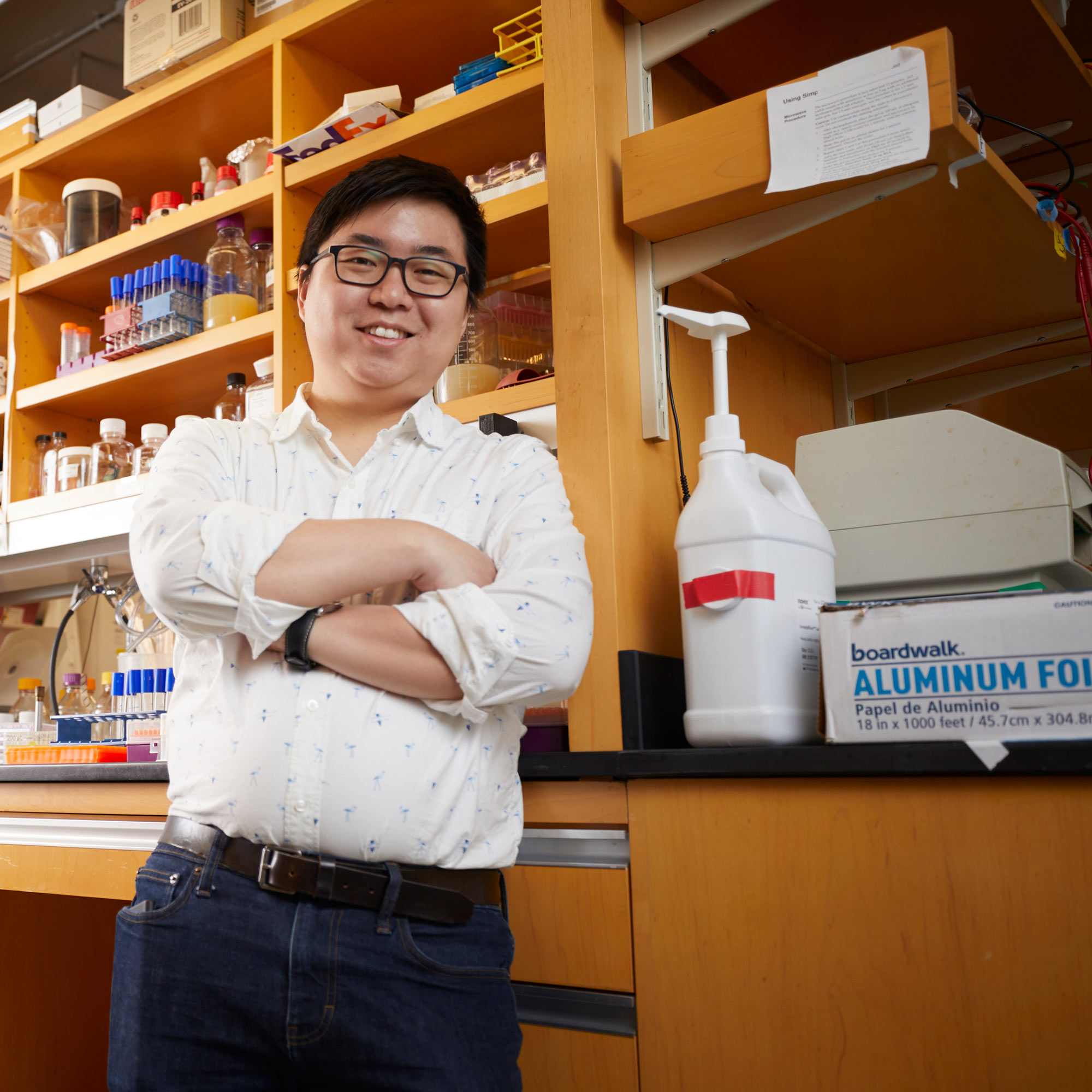

Career Outcomes
Graduates of our program follow diverse career paths, with some pursuing faculty positions at colleges, universities, medical schools, research institutes, or schools of public health, and others joining government agencies, venture capital or consulting firms, or acquiring research positions in the biotech and pharmaceutical industry. Career opportunities in the biological sciences as they apply to global health and disease are expected to continue growing in the coming years.
Eligibility Criteria
To qualify for admission, applicants must demonstrate a strong ability for the vigorous pursuit of scientific knowledge. Minimum requirements include:
- A bachelor’s degree
- Undergraduate preparation in the biological sciences
- Wet lab and/or computational research experience
Application Requirements
- Application and application fee
- Transcripts
- Curriculum Vitae (CV) or Resume
- Three letters of recommendation
- Statement of purpose
- Personal statement
- Demonstration of English proficiency (if applicable)
Read ‘important application details‘ below for more information about each of the requirements listed above.
Please note: GRE General Test scores will not be considered when applications are reviewed.
- Applicants can determine eligibility for a fee waiver by completing a series of questions in the Application Fee section of the online application. Once these questions have been answered, the application system will provide an immediate response regarding fee waiver eligibility. Click here for more information.
- Applicants are required to upload unofficial transcripts from each institution attended. We do not accept transcripts received by mail or email during the application submission and review process. Official transcripts are only required from those who have been admitted and accepted the offer of admission. Transcripts from international institutions must be in English or be accompanied by a certified English translation. All translations must be literal and complete versions of the original records. Click herefor more information.
- Applicants are required to submit three letters of recommendation. We rely heavily on sincere, candid and detailed accounts of each candidate’s accomplishments in their scholarly pursuits and research training from mentors and advisors who have taken the time to cultivate a deep familiarity and understanding of each candidate’s strengths and unique attributes. Click here for more information.
- The statement of purpose is a particularly important part of the application. We suggest that applicants take time to familiarize themselves with program faculty to assess compatibility with their scientific interests and align their purpose and goals with the program. A well-crafted statement should address the following in under 1,000 words:
- Your motivation in seeking doctoral-level training in the BPH Program
- Specific aspects of the BPH Program that motivated you to apply
- A description of any past research experience
- Your current research interests
- The BPH faculty members who most closely match your interests and reasons why you would like to work with them
- Your current career aspirations
- If applicable, a brief description of any hardships, adversity or extenuating circumstances that you feel provide important context for other components of your application
- For your personal statement:
- Please describe the personal experiences that led you to pursue graduate education and how these experiences will contribute to the academic environment and/or community in your program or Harvard Griffin GSAS. These may include social and cultural experiences, leadership positions, community engagement, equity and inclusion efforts, other opportunities, or challenges. Your statement should be no longer than 500 words.
- Please note that there is no expectation to share detailed sensitive information and you should refrain from including anything that you would not feel at ease sharing. The Personal Statement should complement rather than duplicate the content provided in the Statement of Purpose.
- More information about statement of purpose and personal statement guidelines from Harvard Griffin GSAS.
- If English is not your native language and you completed your undergraduate degree in a language other than English, you are required to demonstrate English proficiency by submitting TOEFL (minimum of 100) or IELTS Academic (7.0) scores. Applicants who took tests more than two years ago (i.e., before January 5, 2023, for Fall 2025 admission) must retake them. We are unable to accept any other proof of proficiency. A master’s degree or other graduate degree is not accepted as proof of English proficiency. This requirement applies to all applicants regardless of residency or citizenship status. Click here for more information.
Application Deadline: December 1
Late materials will not be considered. We do not have rolling admissions, so there is no advantage to submitting application materials early.
For more information on applying, visit the Kenneth C. Griffin Graduate School of Arts and Sciences website. General inquiries should be sent to admiss@fas.harvard.edu. Program-specific inquiries should be sent to bph@hsph.harvard.edu.
For those invited, in-person interviews will take place from February 5-6, 2026
Latest News
-
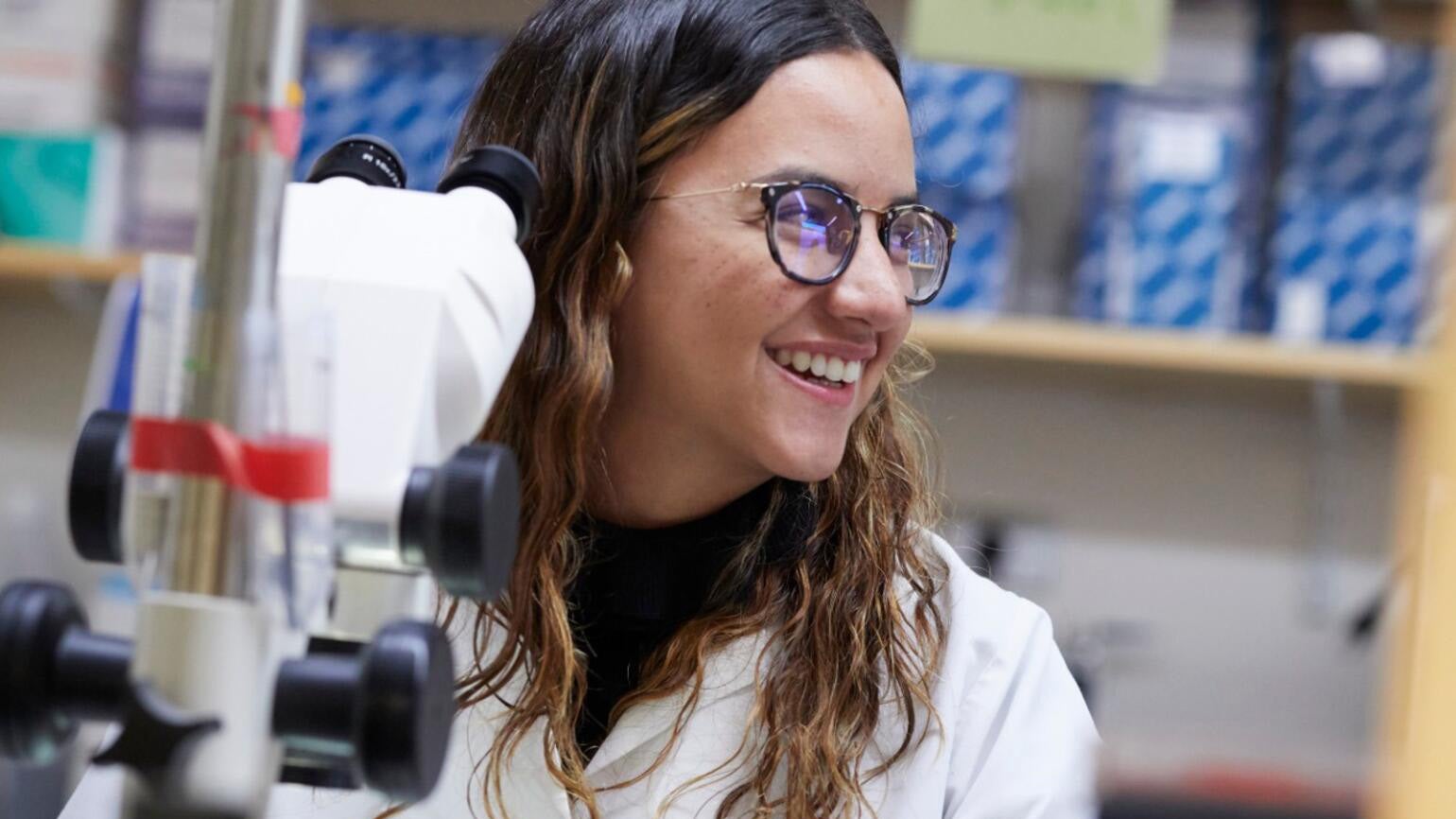
To live longer, and better
Aging January 30, 2026
Come join the BPH community.
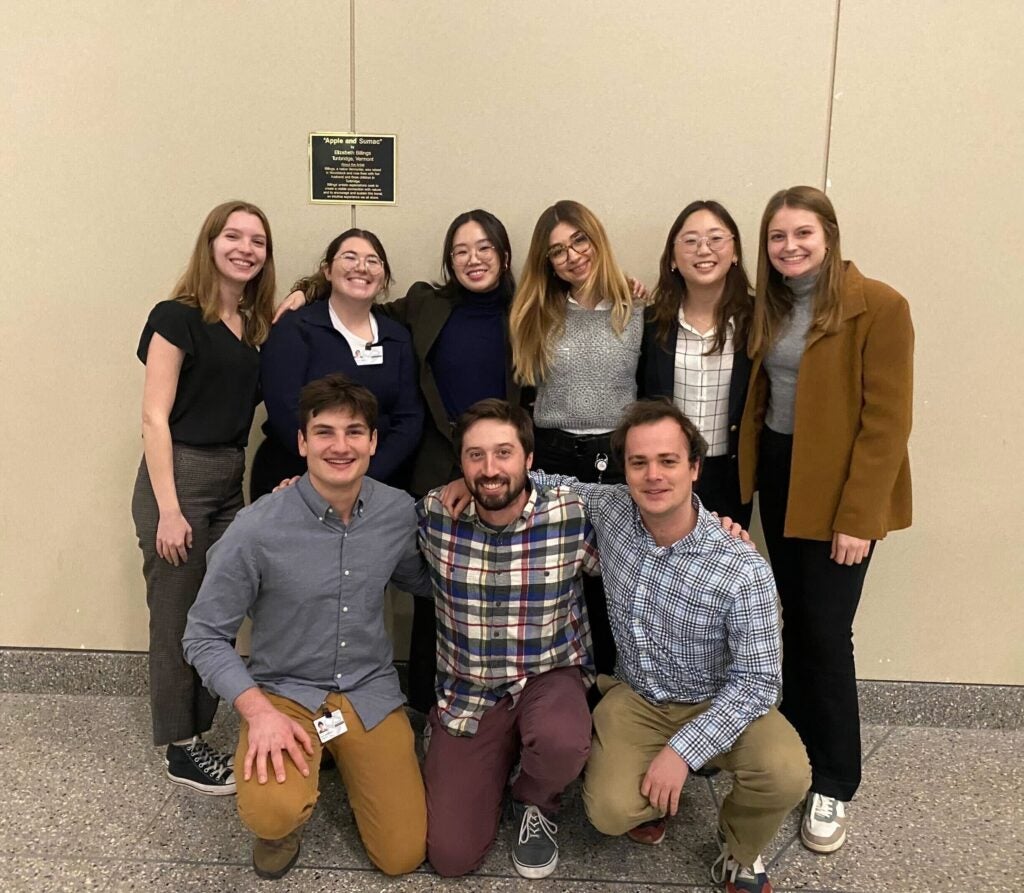
Unleash your potential at Harvard Chan School.
In addition to our degree programs, we offer highly targeted executive and continuing education, directed and taught by Harvard faculty.

